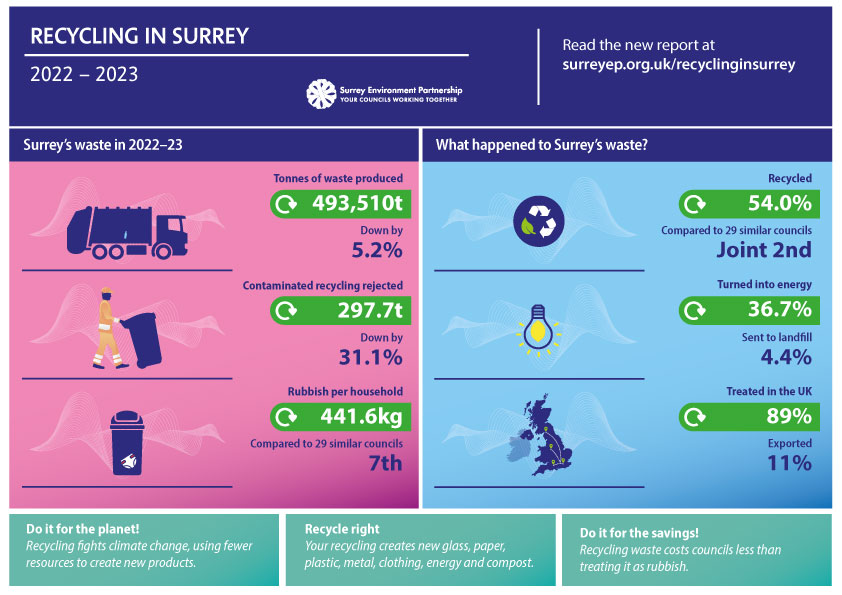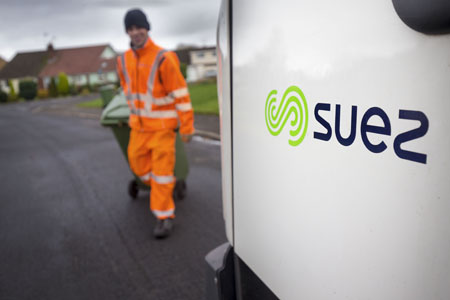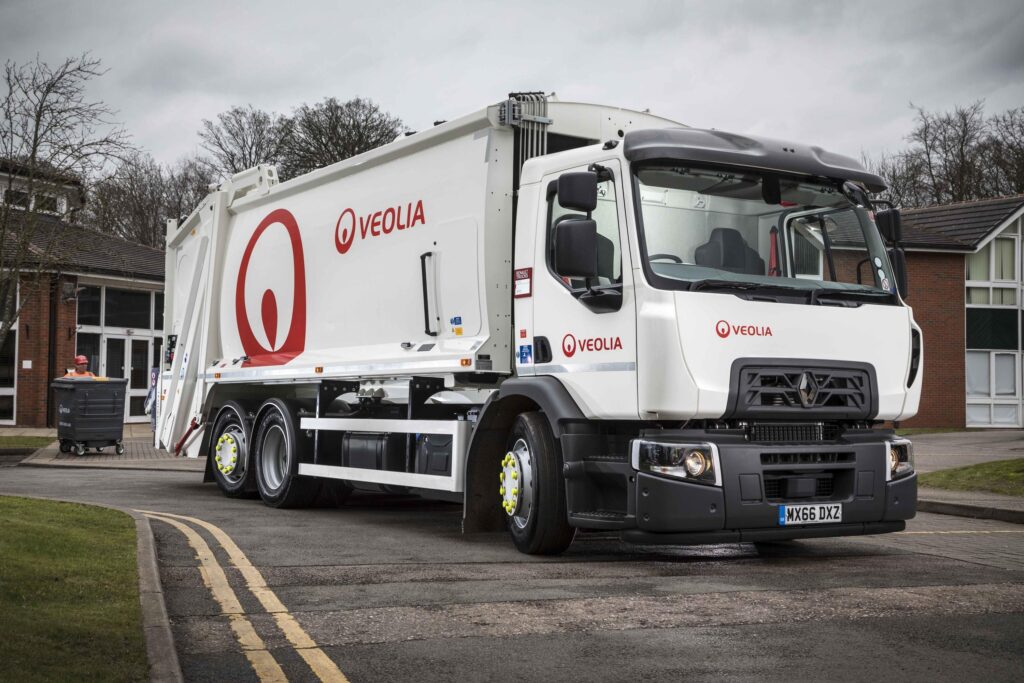The report, which is for 2022-2023, shows that Surrey households have decreased their waste output by an average of 5.3%.
Additionally, the proportion of waste destined for landfill was reported as 4.4% and the study showed 95.6% of Surrey’s waste was repurposed through recycling or energy conversion processes.
Impact
Councillor Marisa Heath, chair of SEP, said: “The new report is great news for Surrey, not just for the impact that residents’ waste is having on the environment, but also for the finances of the county’s councils. This is because fewer resources are being used to create new products, which reduces emissions and helps climate change. It is also a benefit as it’s cheaper for councils to process less waste overall and to recycle it rather than turn it into energy or send it to landfill; money that could be spent elsewhere.”
Emissions
Furthermore, the report highlights Surrey’s efforts to keep waste processing within the UK, with an 89% of waste being managed domestically. It highlights that this approach does not minimise carbon emissions associated with long-distance transportation and helps the local economy.
However, the report also highlights areas for improvement. Surrey has identified issues with contamination in recycling streams, where non-recyclable items compromise the integrity of entire batches of recyclables. Additionally, while the report shows the county has made strides in waste reduction, there is room for improvement in comparison to similar waste disposal authorities across England.
The report also recommends encouraging residents to participate in programmes like Rethink Waste, which incentivises waste reduction through rewards redeemable for charitable donations or prizes.
Additionally, it also urges residents to recycle food waste, utilise resources such as the Surrey Recycles search tool and app, and familiarise themselves with SEP’s guidelines for waste sorting.












Subscribe for free